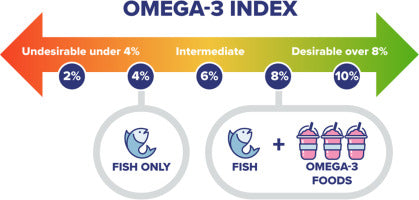Understanding Omega 3 and Its Role in Brain Health
The Essential Omega 3 Fatty Acids for the Brain
Omega 3 fatty acids are vital for brain health. They are the building blocks for brain cells. Our body cannot make them, so we must get them from our diet. There are three types of Omega 3s important for the brain: ALA, EPA, and DHA. ALA is found in plant oils. EPA and DHA are in fish and algae. DHA is the key Omega 3 for the brain, making up a large part of its fats. It is important for brain development and function. EPA supports mood and brain health. Including Omega 3s in your diet supports brain cell structure and signalling.

How Omega 3 Supplements Benefit Cognitive Functionality
Omega 3 fatty acids are vital for brain health. They help maintain the fluidity of cell membranes in the brain. This allows for better communication between neurons. Studies show that these fats can enhance cognitive functions. People who take Omega 3 supplements often report better focus and memory. These supplements may also reduce age-related brain shrinkage. Thus, they could help in preserving mental abilities as we age. Daily intake of Omega 3 can be a simple step towards sharper thinking.
The Science Behind Fish Oil and Cognitive Performance
Analyzing the Effectiveness of Fish Oil in Promoting Brain Health
Fish oil is rich in omega 3 fatty acids, vital to brain health. Research shows that DHA and EPA, two types of omega 3s found in fish oil, are crucial for maintaining the structure and function of brain cells. Clinical trials have analyzed the impact of these nutrients on various aspects of cognitive performance including memory, focus, and the reduction of mental decline. Some studies suggest that regular fish oil supplementation may also improve mood and reduce inflammation, which can have a positive impact on brain function. However, not all studies agree, indicating that more research is necessary to fully understand the benefits and to identify which populations might gain the most from fish oil supplements.
Advantages of Incorporating Fish Oil into Diet and Supplement Regimens
Incorporating fish oil into your diet and supplement routine can be highly beneficial for the brain. The key advantages include:
- Enhanced Memory Function: Regular fish oil consumption has been linked to improved memory.
- Mood Support: Omega-3s in fish oil can play a role in mood regulation, potentially easing symptoms of depression.
- Neuroprotective Effects: These supplements may help protect against age-related cognitive decline.
- Support for Brain Structure: The DHA in fish oil is crucial for maintaining the structure of brain cells.
By making fish oil a part of your daily regimen, you're investing in your cognitive health for the long run.
Integrating Omega 3 and Fish Oil into a Holistic Health Strategy
Best Practices for Maintaining Mental Clarity and Concentration
To keep a sharp mind, a balanced approach is key. Here are some best practices:
- Regular Intake: Consistently consume Omega 3 and fish oil, either through diet or supplements.
- Diverse Diet: Include a variety of brain-boosting foods like nuts, berries, and leafy greens.
- Stay Hydrated: Drinking enough water is crucial for cognitive function.
- Exercise Regularly: Physical activity increases blood flow to the brain.
- Mindful Habits: Engage in activities that stimulate the mind, like puzzles or learning new skills.
- Quality Sleep: Prioritize 7-9 hours of sleep for brain recovery and memory consolidation.
- Stress Management: Practice relaxation techniques like meditation to lower stress levels.
These steps, along with Omega 3 and fish oil, can help maintain mental clarity and focus.
Preventative Measures for Long-Term Brain Health and Wellness
Maintaining long-term brain health involves a proactive approach. Prevention is key. Here are some measures:
- Consistent Intake: Regular consumption of omega 3 and fish oil can be crucial. Aim for a daily dose recommended by health experts.
- Balanced Diet: A diet rich in fruits, vegetables, and whole grains supports overall brain health. Omega 3-rich foods add extra benefits.
- Mental Exercise: Engage in activities that promote mental agility. Puzzles and learning new skills can help.
- Physical Activity: Regular physical exercise improves blood flow to the brain, which can aid cognitive functions.
- Stress Management: Techniques like meditation and yoga can reduce stress, which is important for a healthy brain.
- Quality Sleep: Ensure you're getting adequate, quality sleep. Proper rest is necessary for brain repair and memory consolidation.
- Regular Check-ups: Regular health and lab tests, ensure any issues are detected early.
By integrating these measures, you can support your brain's longevity and vitality.




